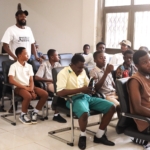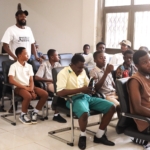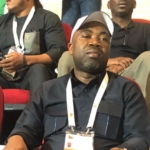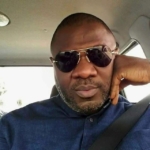
The Department of Gender in the Ashanti Region has launched a series of community trainings aimed at changing how adolescent boys view power, relationships and responsibility.
The move comes amid growing concern over widespread videos of men assaulting their partners, which have sparked public debate about violence in Ghanaian homes.
At a session held in the Asokore Mampong Municipality, Acting Regional Head of the Department of Gender, Ama Nyanta Boateng, said the training is a direct response to the rising cases.
“We cannot wait for boys to become men before we talk to them about violence. We want them to understand positive masculinity. We want them to know how their behaviour affects others, especially girls,” she said.
The Department of Gender is working with the Ashanti Regional Secretariat of the National Population Council on a regional tour covering districts, municipalities and mining communities.
The aim is to reach boys aged 13 to 19, including those out of school.
Boateng said boys are often left out of programmes that target protection and empowerment.
“Society talks to girls a lot. We teach them how to behave, how to protect themselves. But boys do not get the same guidance. If we leave them out, we create a gap that leads to abuse,” she explained.
The training includes discussions on respect, consent, emotional control and the long-term effects of abusive behaviour.
“Adolescent boys often see violence as normal because no one explains its impact. We want them to understand that violence is a choice, not a norm,” she said.
The Regional Manager of the National Population Council, Mercy Adomaa Beseah, said the team is targeting boys because they are central to reducing gender-based violence.
“If the boy is not guided, the girl pays the price. We want to stop adolescent pregnancies and emotional harm. We want boys to move away from negative masculinity,” she said.
She noted that out-of-school boys face more risk.
“They rely on peers for information. Parents rarely talk to them about sex or emotions. We want to fill that gap,” she revealed.
The programme also includes sexual health education delivered by the Ghana AIDS Commission.
Olivia Graham, the Commission’s Technical Coordinator in the region, spoke to the boys about HIV and other sexually transmitted infections.
“The biggest risk is unprotected sex. Testing takes only 15 minutes. Every young person should know their status,” she advised.
She said early testing and treatment prevent long-term harm.
“HIV is not a death sentence. But silence puts young people at risk,” she cautioned.
Ama Nyanta Boateng added that the Department of Gender will continue to expand the programme to other communities.
“We want boys and girls to grow into adults who can live without violence.
To do that, we must start with honest conversations with boys now.”
The Department of Gender says its next sessions will focus on mining communities, where officials say economic pressures and social norms often fuel early relationships and unsafe behaviours.
- President Commissions 36.5 Million Dollars Hospital In The Tain District
- You Will Not Go Free For Killing An Hard Working MP – Akufo-Addo To MP’s Killer
- I Will Lead You To Victory – Ato Forson Assures NDC Supporters
Visit Our Social Media for More




